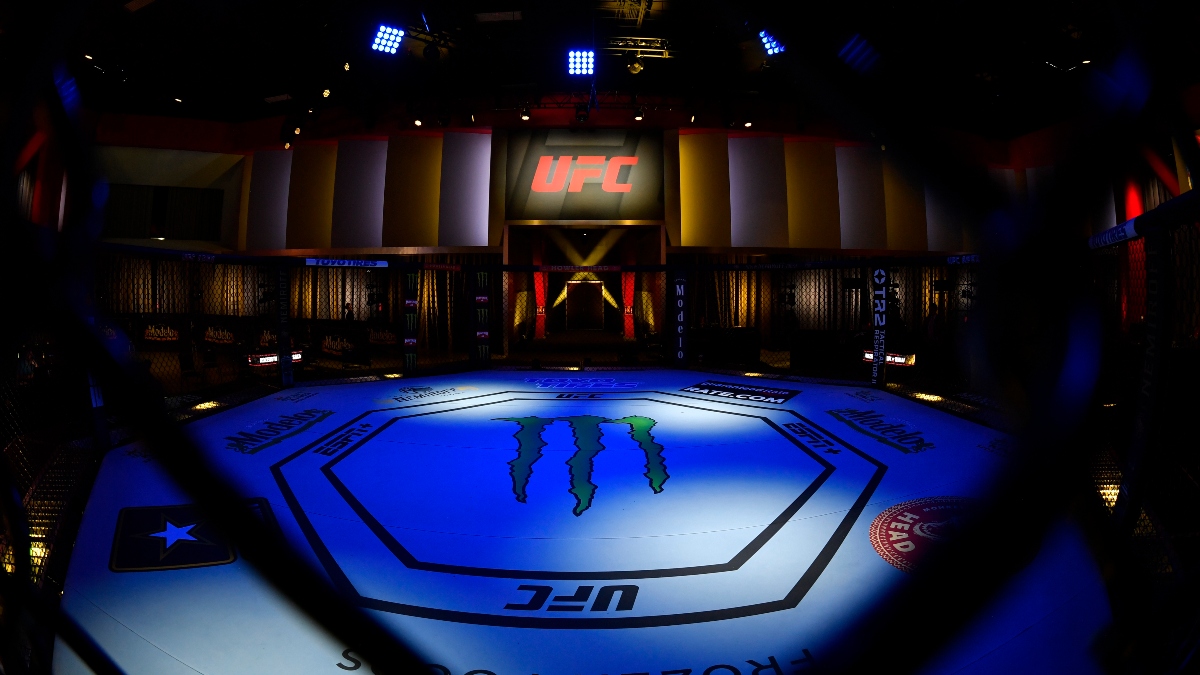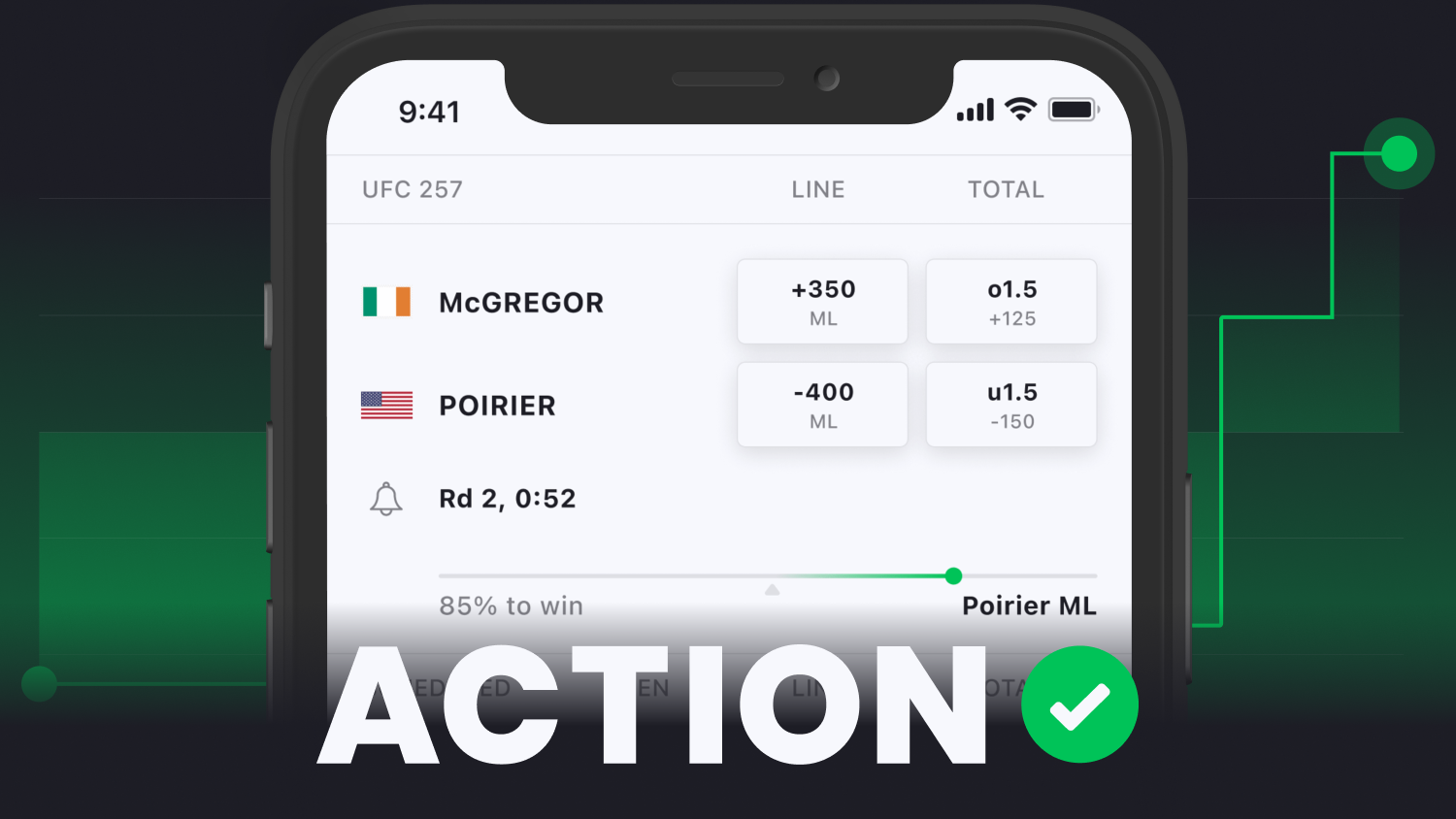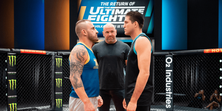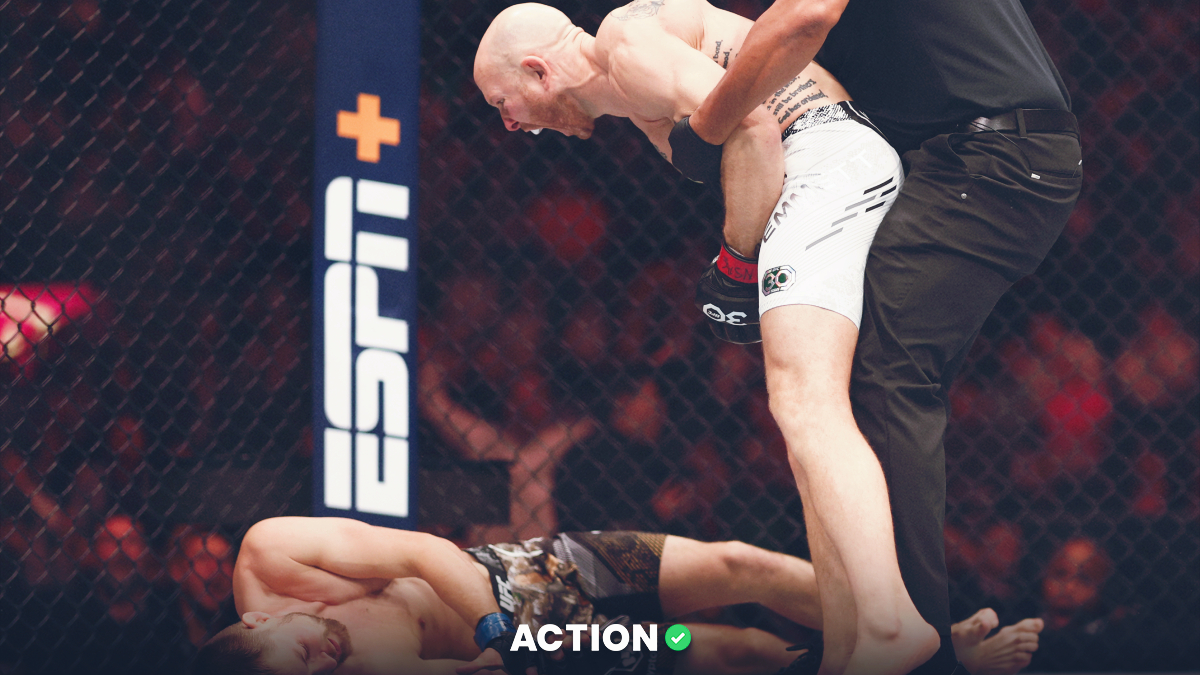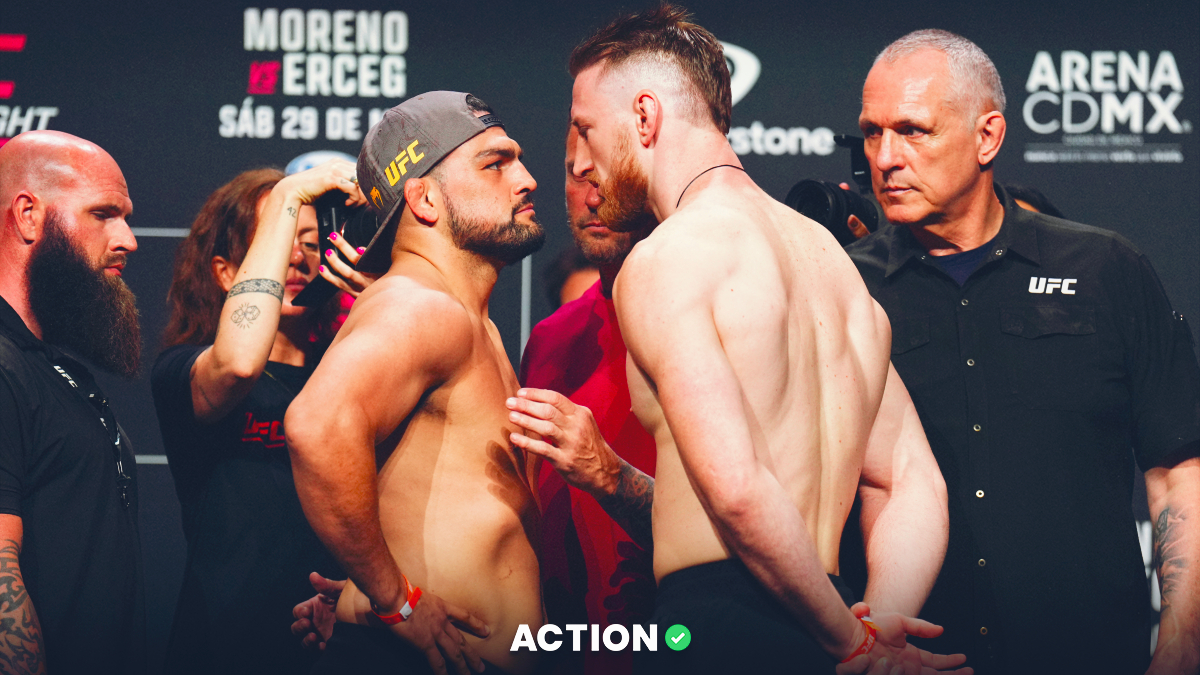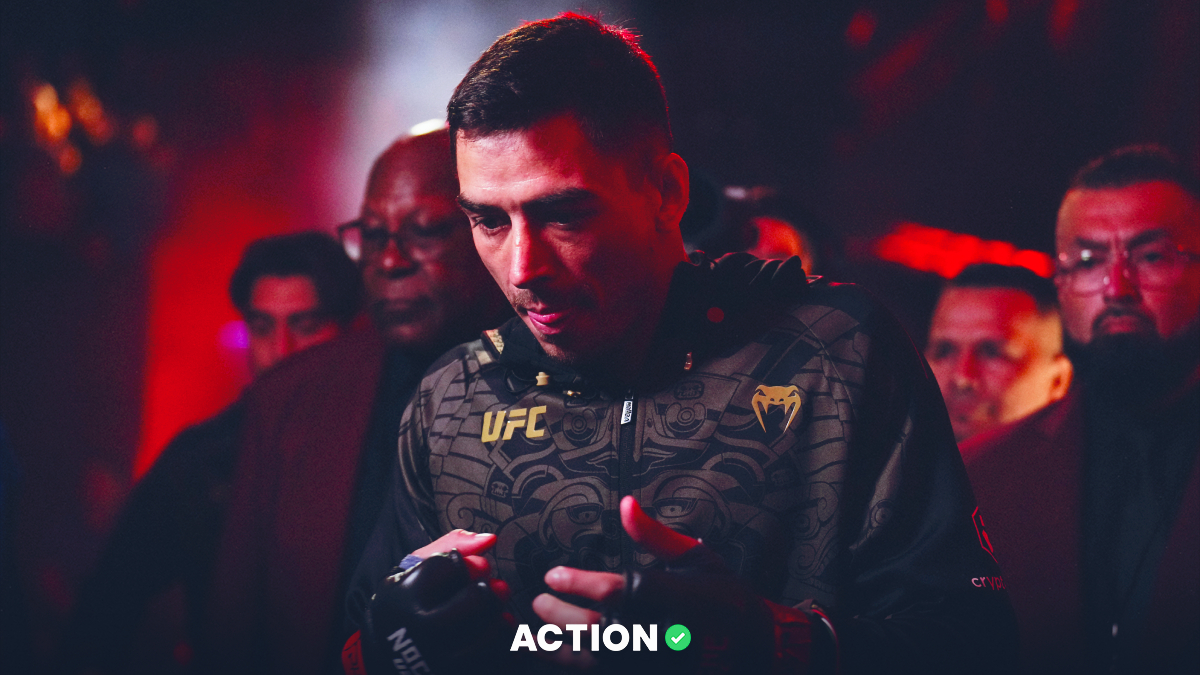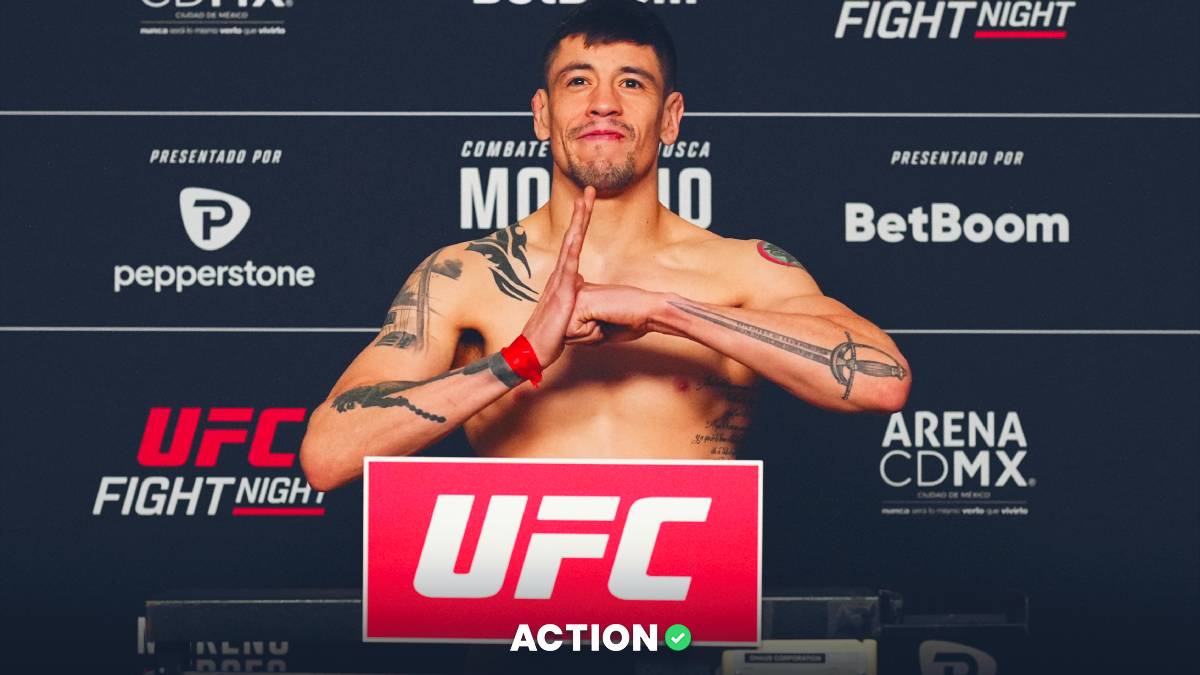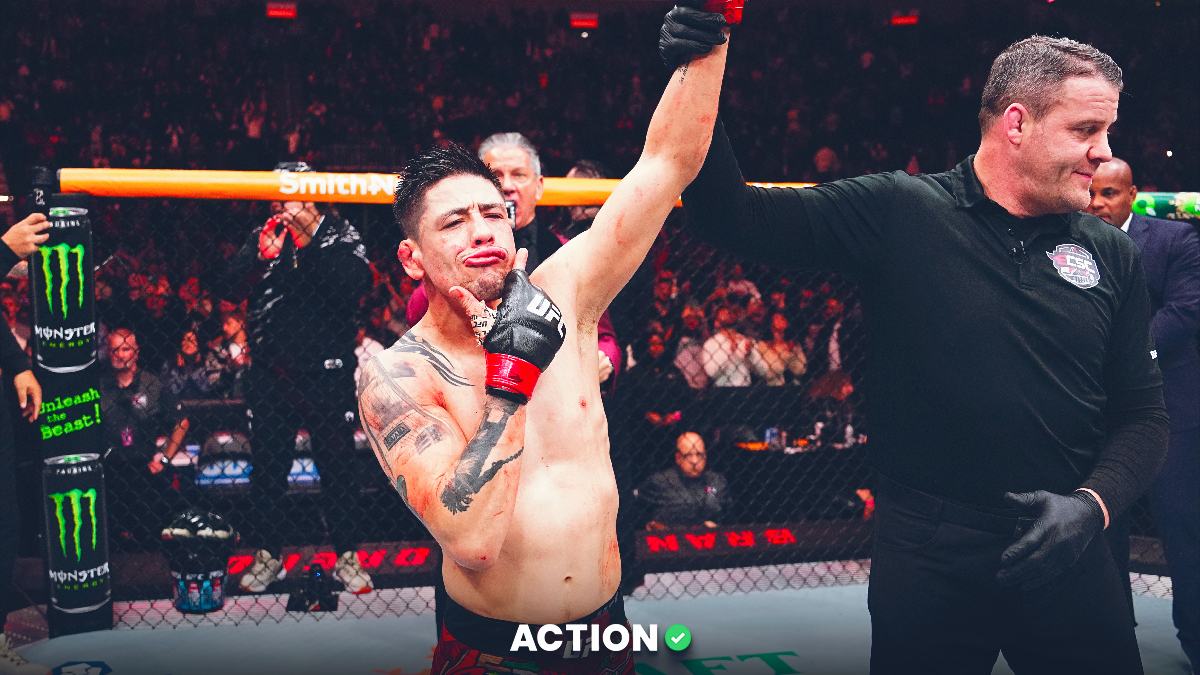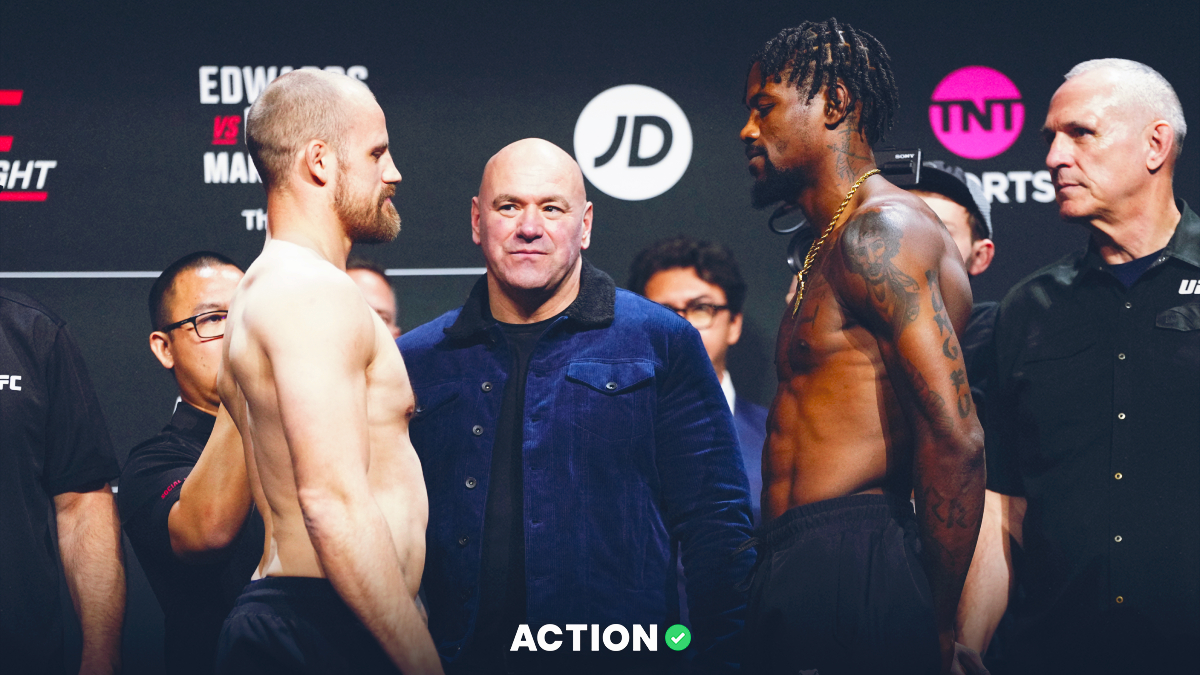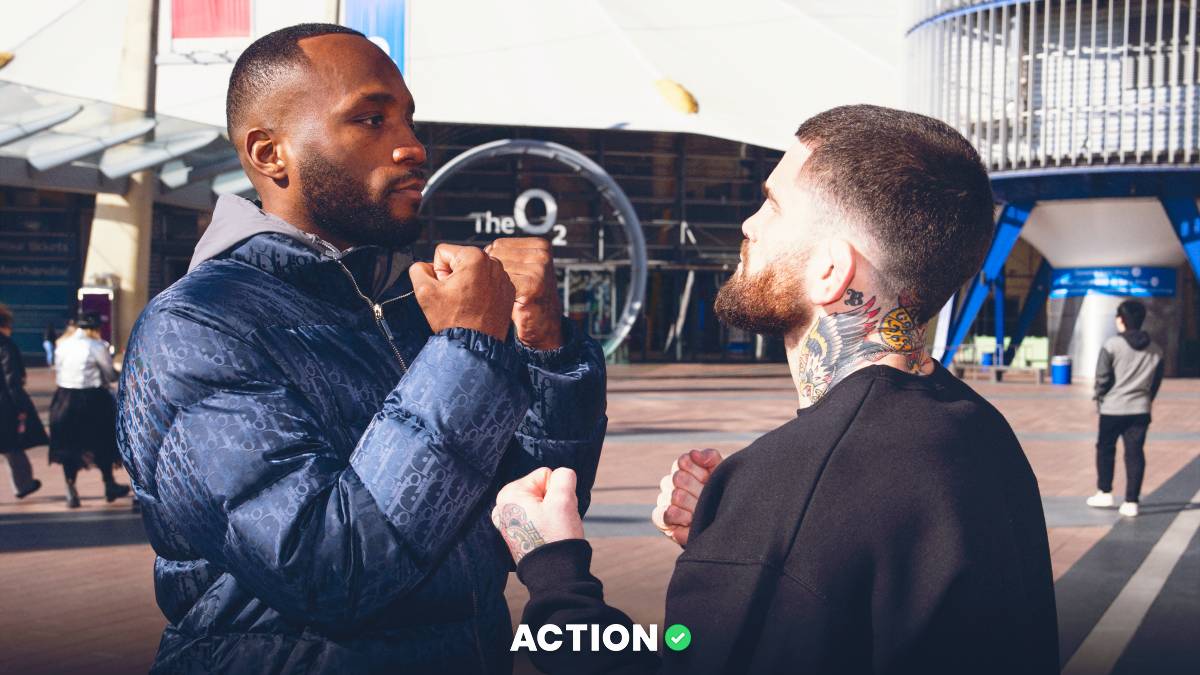While watching UFC Vegas 33 I came across this tweet from fellow Action Network contributor Erich Richter:
Wow! Another underdog wins in the UFC tonight.
Underdogs have been going wild the last two weeks
4-0-1 tonight
7-3 last week
11-3-1 last two weeks (78.57% hit rate)
+14.71 units of profit #UFCVegas33
— Erich Richter (@erichterrr) August 1, 2021
That got me thinking: It seems like non pay-per-view UFC cards have been filled with upsets. So would it be profitable to just blindly bet underdogs? What about on PPVs, would the opposite strategy of betting every favorite on the card work?
I went back and looked at every UFC card in 2021 and tracked the hypothetical return on betting one unit on every fight — favorites on PPV cards, underdogs on free cards.
I used the closing line according to Tapology and tossed out any fight where there wasn’t a fighter listed at odds longer than +100. So if the “underdog” was -105, that didn’t count. I applied this to favorite bets too, which essentially meant that all the favorites considered were -125 or better.
I also didn’t count fights that Tapology currently lists as no-contests, even though some of these likely would have paid out despite having the result overturned later.
Finally, as noted above, I evaluated based on flat bets of one unit, you might be able to get different results if betting to win one unit on favorites. Enough preamble, here’s what I found:
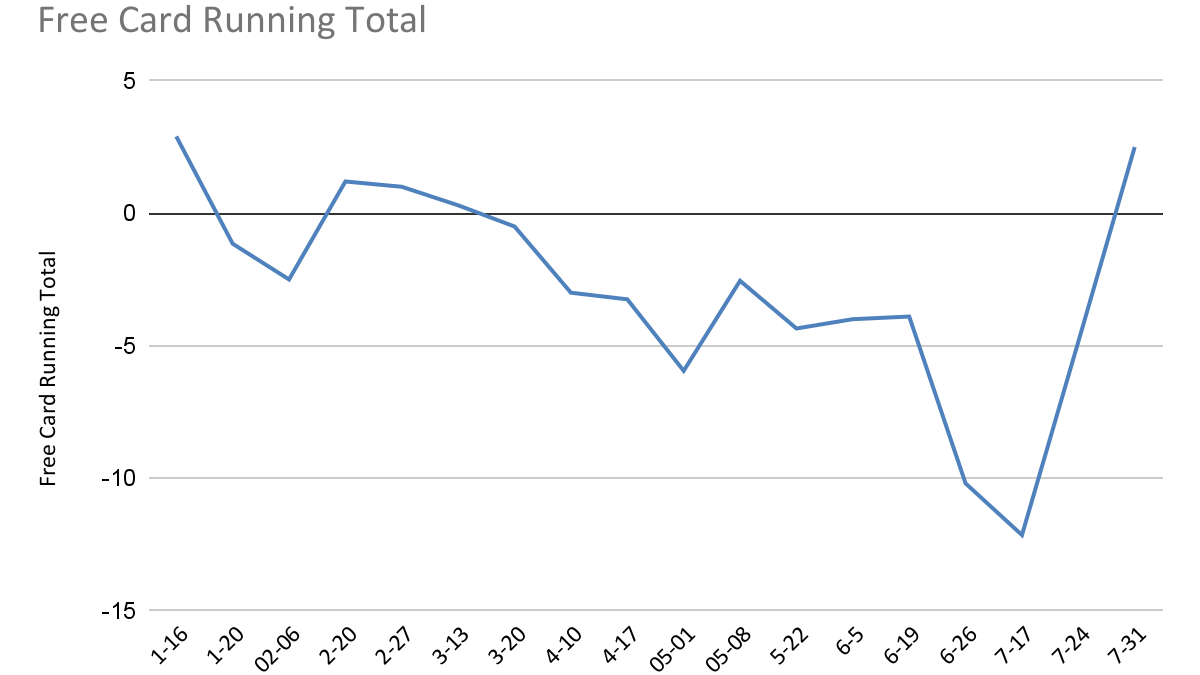
For free events, you’d be up precisely 2.5 units betting on every underdog in 2021, for an average of roughly 0.14 units per event. This of course is relying heavily on the last two events, which as Erich noted accounted for around 14.6 units.
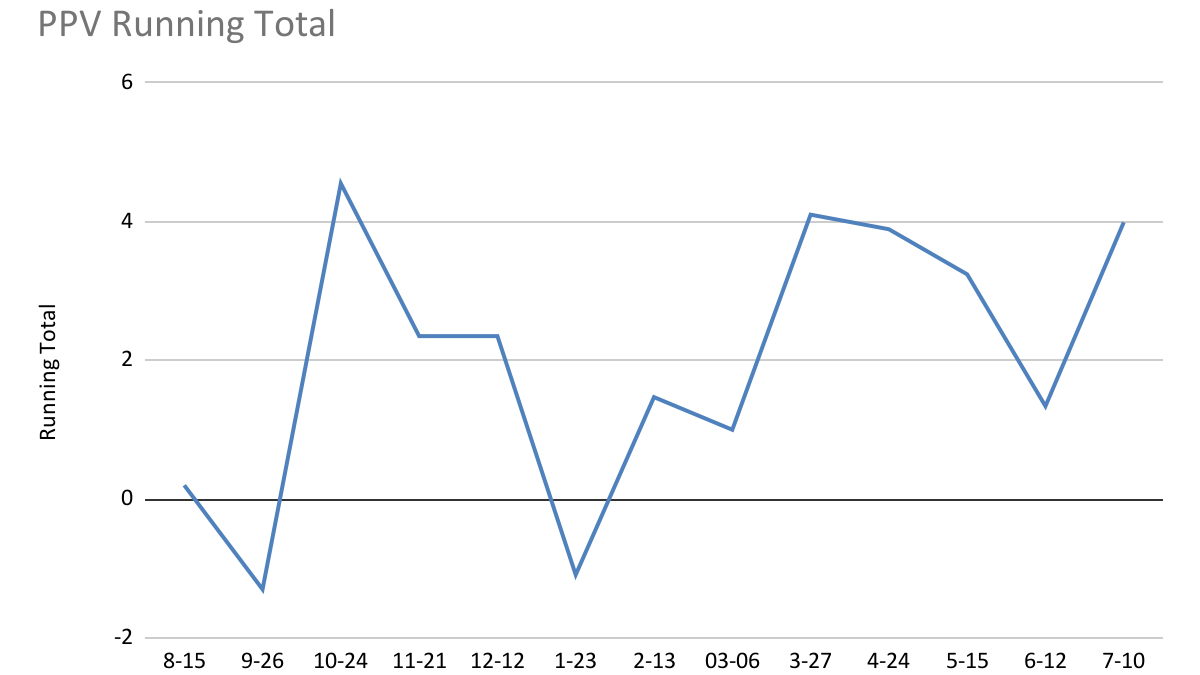
Betting every PPV favorite at a flat one-unit bet would’ve netted you around four units of profit since last August, for an average of 0.3 units an event.
(I added a few extra events from 2020 to improve the sample size. In case you’re concerned I arbitrarily ended it to fit what I was looking for, the PPV prior to where I stopped would’ve added a three unit profit to the favorites.)
If I had considered only cards in 2021, the return would be about 0.2 units per event on PPVs.
While the results weren’t shocking, underdogs have been more profitable on free cards, and favorites have been better on PPVs.
We’re generating just over 1% return on investment on free cards and just under 3% on PPVs, assuming a 12-fight average per card (the actual ROIs are somewhat higher considering all the fights I didn’t count due to no-contests, draws or no clear favorite.)
My working theory on what’s happening here is that PPV cards tend to have more established fighters with longer resumes, while the free cards have more unknowns, thus making it harder for books to price the fights accurately, leading to more underdogs winning.
This is especially true when both fighters are making their promotional debut, in which case it’s very difficult to evaluate the relative quality of their competition. Since this almost never happens on paid events, the books are more likely to hang a bad line on free cards.
Additionally, the betting market itself is more liquid and efficient on the bigger cards. Limits tend to be higher, and bettors who are buying a Connor McGregor fight may be more inclined to bet on his undercard than the opener of an event headlined by Sean Strickland vs. Uriah Hall.
Since we looked at closing lines, we’re seeing the result of more money hammering the lines into shape, which should make the market more efficient and lead to more favorites winning.
So how can we use this?
I wouldn’t recommend just blindly betting each and every fight based on the strategy outlined here. The sample size here is still relatively small, and that strategy brings a lot of risk with a limited return. With that being said, we could fairly easily improve on this method without having to know a ton about the fighters involved.
First, it’s extremely important to line shop. Tapology seems to post some version of a consensus line, and for the vast majority of these fights you could’ve gotten a better line by checking prices on our UFC odds page. They also list lines with a wider straddle than most sportsbooks, with toss-up fights being listed as -115 both ways, which is almost a 3% change in the books hold compared to lines at -110.
You should also consider changing your bet timing based on what type of bets you’re making. Underdogs probably lose some of their value throughout the week. As an example, this I recently wrote about a bet I was making on Billy Quarantillo, who was a +180 underdog when I made the bet and dipped to +140 by Friday night.
It’s a lot easier to beat opening lines than closing lines, and my unconfirmed suspicion is that if we applied this methodology to lines as they were on Mondays before the fight, the results would be stronger.
Finally, and most importantly, it's important to use this information to inform your decisions without fully relying on it. Consider leaning more towards the underdog when you see fighters with limited UFC experience, or less name recognition, and vise-versa.
I somewhat arbitrarily drew the line between PPVs and free cards, but headlining fights on free cards are probably more efficient than the early prelims on PPVs, so by understanding this phenomena you could make better decisions when putting your money down.


